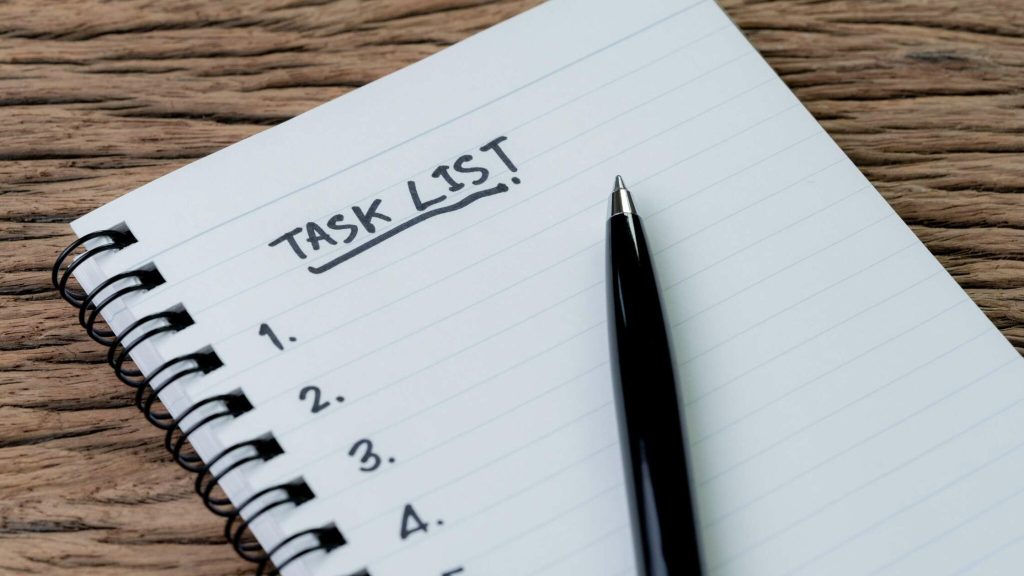Creating Simple Systems to Manage Your Daily Tasks
Jessica White August 6, 2025
In today’s always-on world, managing daily tasks isn’t just about checking boxes—it’s about finding systems that support how you actually live. Whether you’re working remotely, balancing family responsibilities, or trying to pursue personal goals, a consistent routine can feel out of reach. That’s why a growing number of people are turning to AI productivity tools to build smarter, simpler ways to manage their time.
These tools are reshaping how we approach everyday life by adapting to our behavior, anticipating needs, and taking over repetitive planning tasks. Rather than using traditional to-do lists or rigid planners, more people are building flexible systems that respond to the demands of real life—with help from artificial intelligence.

The Shift from Manual to Adaptive Task Management
For decades, productivity meant self-discipline and structure. Planners, notebooks, and basic task apps offered a way to track what needed to be done. But these methods had one major flaw: they relied entirely on manual input and didn’t adjust to changing priorities.
In contrast, AI productivity tools do more than just store your tasks—they analyze your habits, respond to shifting schedules, and even recommend what to do next based on urgency, time, and context. This move toward dynamic systems is part of a larger trend in lifestyle design, where convenience, automation, and mental clarity are valued just as much as efficiency.
A 2024 report by Deloitte found that 57% of professionals who adopted AI-based time management tools reported not just increased productivity, but lower stress levels. The connection is clear: when you don’t have to constantly think about what to do next, you have more mental space for actual focus.
What Sets AI Productivity Tools Apart?
Unlike traditional tools, AI-based systems bring a level of adaptability and smart decision-making that’s especially useful for managing modern routines. Here’s how they stand out:
- Context-aware scheduling – Tools like Motion and Reclaim AI analyze your calendar, task deadlines, and even your working hours to automatically arrange your day in a way that makes sense.
- Natural language recognition – With platforms like Notion AI or Mem, you can jot down tasks conversationally, and the tool will translate them into structured actions or reminders.
- Habit support – Many AI tools allow recurring task automation and will nudge you to stay consistent with healthy habits like walking, journaling, or doing deep work.
- Cross-platform integration – AI productivity tools are designed to work seamlessly with calendars, email, messaging apps, and project management systems.
These features enable users to set up simple yet powerful systems that don’t require constant babysitting.
Top AI Tools for Creating Daily Task Systems
1. Motion – Your Automatic Day Planner
Motion uses artificial intelligence to plan your day in real time. Just input your tasks and deadlines, and the tool will schedule them around your meetings, breaks, and time blocks. If something comes up—like a last-minute meeting—Motion reschedules your day instantly.
How to use it:
- Create a task list and assign due dates.
- Connect your calendar to allow auto-scheduling.
- Review and adjust the plan each morning.
Ideal for: Freelancers, remote workers, and anyone who juggles multiple meetings and tasks daily.
2. Reclaim AI – Balance Work and Life Automatically
Reclaim AI focuses on work-life harmony. It syncs with your Google Calendar and automatically schedules flexible time blocks for habits, deep work, and even lunch. If a conflict arises, it intelligently moves your routines to another time.
Best features:
- Flexible habit time blocks (e.g., daily reading)
- Smart meeting scheduling based on focus time
- Weekly reports on time spent per category
Why it matters: Users gain back 5–8 hours of productive time per week, according to Reclaim’s internal analytics.
3. Notion AI – Brain Dump and Organize Instantly
Notion AI enhances the already-powerful Notion platform by adding AI-generated task summaries, goal planning, and automatic structure to your daily inputs. You can write down thoughts freely, and the AI will sort them into actionable steps or recurring tasks.
Use case example:
- Start your day with a journal entry or task dump
- Let Notion AI identify priorities and break them into to-dos
- Customize your dashboard for daily tracking
Great for: Students, creative professionals, and multi-taskers who need clarity without rigidity.
4. Sunsama – Mindful Daily Planning
Sunsama blends AI planning with mindful work practices. It encourages users to set daily intentions and allocate realistic time for each task. It also integrates with Notion, Google Tasks, and Asana, making it ideal for those managing complex project loads.
Notable features:
- Drag-and-drop planning interface
- AI task estimation based on past behavior
- Daily review prompts to build reflection habits
Perfect for: Those who value intention, calm workflows, and sustainable productivity.
Real-Life Benefits of Using AI Productivity Tools
The lifestyle impact of building simple systems with AI productivity tools is more than anecdotal. Here are some data-backed and experiential benefits:
- Reduced decision fatigue: A University of Southern California study on digital productivity tools found that AI-assisted planners significantly lowered the number of daily micro-decisions users had to make.
- Improved follow-through on goals: Regular users of automated scheduling tools reported a 32% increase in consistency with personal habits like journaling, fitness, and daily planning.
- More meaningful free time: When your day is pre-organized, it’s easier to disconnect after hours, leading to better rest and stronger boundaries.
Common Challenges and How to Avoid Them
Despite the benefits, using AI task tools can feel overwhelming at first. Here’s how to overcome some common pitfalls:
| Challenge | Solution |
|---|---|
| Tool overload | Start with one app and master it before adding another. |
| Over-automation | Keep flexibility in your schedule for spontaneous tasks. |
| Feeling monitored | Choose tools with clear data privacy policies and user control. |
| Loss of personalization | Regularly adjust settings to match your energy flow and real-life needs. |
The key is to let the AI assist—not control—your daily structure.
Building Systems That Stick
Consistency is what turns tools into systems. Here’s how to embed AI into your daily flow without making it feel like a chore:
- Daily Review: Start each morning by reviewing your tasks and allowing the AI to adjust based on updates.
- Weekly Planning Ritual: Spend 15 minutes on Sunday setting your top three priorities for the week. Let the tool schedule them.
- Automate Recurring Habits: Block time for exercise, planning, or digital detox—and let the AI protect that space.
- Track and Adjust: Review how well your system is working monthly and make small tweaks.
These small habits make it easy for the technology to serve you, not the other way around.
The Future of Daily Task Management
AI productivity tools are not just a trend—they’re shaping the future of how we manage time. Emerging features include:
- Emotion-aware planning based on mood tracking
- Voice-controlled task managers integrated into smart home devices
- AI coaches that offer feedback on how you spend time vs. your stated goals
As AI continues to blend with lifestyle choices, the ability to manage your day will become more personalized, automated, and wellness-oriented.
References
- Deloitte Insights – AI Adoption Trends 2024. Available at: https://www2.deloitte.com (Accessed: 6 August 2025).
- Reclaim AI – User Impact Stats. Available at: https://reclaim.ai (Accessed: 6 August 2025).
- Motion – Smart Scheduling Features. Available at: https://usemotion.com (Accessed: 6 August 2025).







